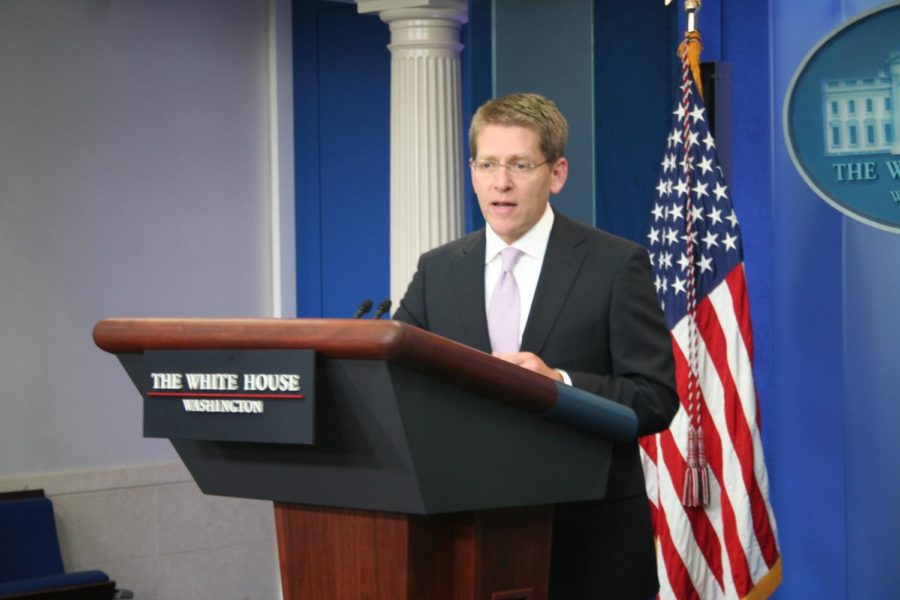White House announces waivers for No Child Left Behind law
Press Secretary Jay Carney discusses reform efforts involving No Child Left Behind in a White House briefing in Washington D.C. on July 8, 2011.
August 8, 2011
About half the schools in Tennessee didn’t meet the annual yearly progress requirements of the No Child Left Behind law last year. Tennessee is not alone.
Saying schools are struggling to meet the student progress requirements of the No Child Left Behind law, the White House announced Monday it would be signing waivers that will relieve schools of some of the key provisions of the law.
“The law — No Child Left Behind — as it currently stands is four years overdue for being rewritten. It is far too punitive. It is far too prescriptive. [It] led to a dumbing-down of standards [and] led to a narrowing of the curriculum,” Education Secretary Arne Duncan said at a White House press briefing on Monday. “We can’t afford to have the law of the land be one that has so many perverse incentives or disincentives to the kind of progress that we want to see.”
The law requires that all students meet reading and math adequacy by 2014. If they don’t, the schools are subject to reforms. As the standards have increased annually, schools are finding it increasingly difficult to meet them.
“We hope that this is simply a transition or bridge to fixing the law,” Duncan said of the waiver plans.
Rather than a large sweeping bill to reauthorize the entire Elementary and Secondary Education Act (ESEA), also known as No Child Left Behind Act, Rep. John Kline’s committee has been working on smaller, more specific bills throughout the summer to address ESEA concerns.
The Republican-led House Education and the Workforce committee has passed three bills intended to streamline education programs, address charter school issues and give states and localities more flexibility in spending their federal dollars. These bills have not yet made it to the House floor for debate, nor have they come up in the Democratic-led Senate for debate. Only one of the bills — the one on charter schools — passed out of the House committee with bipartisan support.
The committee is expected to take up separate legislation on teacher effectiveness and accountability this fall.
“I remain concerned that temporary measures instituted by the Department [of Education], such as conditional waivers, could undermine the committee’s efforts to reauthorize the Elementary and Secondary Education Act,” Kline, R-Minnesota, said in a statement Friday.
Duncan said the Education Department will announce the standards under which the waivers will be granted in September but in the meantime, they encourage all states to apply. Duncan said he had talked to more than 30 governors about the waiver plan.
“I have not spoken to one governor that wasn’t very enthusiastic about this,” he said.
Tennessee applied for a waiver to the law late last month, according to Kelli Gauthier of the Department of Education there.
Without a waiver, Tennessee would be “responsible for intervening in a large number of its ‘failing’ schools; a role the department has neither the desire nor the capacity to take on,” according to Gauthier.
Tennessee is still waiting to see if Secretary Duncan approves its request.







